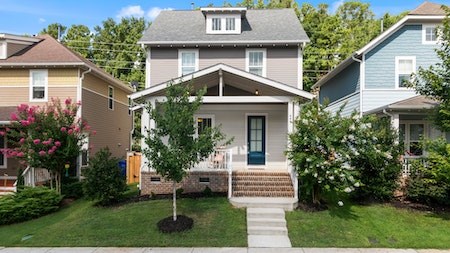The Absa Homeowner Sentiment Index for Q1 of this year is debatably one of the most important sentiment analyses to date, given the return to interest rate hikes since the decreases that Covid-19 brought about.
In spite of the two interest rate hikes that took place during this quarter, the first in January and the second in March, each of 25 basis points, sentiment increased to 81%. This is a two-percentage- point (pp) increase from Q4 2021, where Absa noted a slight dip in sentiment due to the discovery of the omicron virus and travel ban restrictions imposed on southern African countries.
Respondents cite high demand for properties and the potential to make a good profit as some of the key drivers for this high confidence.
The segment with the highest overall confidence in the property market, in Q1 2022, is among respondents who have never owned property before (84%), closely followed by first-time homeowners at 82%, followed by non-first-time homeowners (76%).
Investors were the only segment that showed a decline (down 5pp) in overall confidence, citing concerns of economic and political instability coupled with high levels of unemployment. The unemployment rate has been on a steadily increasing during 2021, reaching 35.3% in Q4 of 2021, but it seems to be levelling off in Q1 2022.
“We are, however, seeing some indicators that interest rates are becoming a cause of concern, as the number of respondents that cited favourable interest rates as a reason for positive sentiment has reduced significantly, dropping 10pp,” says Lindiwe Malobola, Lead Data Scientist Home Loans at Absa.
”Both buying and selling sentiments have increased and were reported as 78% and 44% respectively. Respondents see property as a good investment that accumulates in value. They are also citing potential bargains in the market due to a belief that there are property owners that are desperate to sell and there is a large supply of properties on the market currently.”
Investors had the highest buying sentiment increase (up 6pp) and, together with first-time homeowners, lead buying sentiment at 78%, respectively. “Considerably more investor respondents believe that market conditions remain conducive for buying as they perceive interest rates as sufficiently low and prices being affordable with potential bargains still present in the market,” says Malobola.
Despite having the highest sentiment towards buying (matching investors), first-time homeowners were the only segment to show a quarter-on-quarter decline, down 2pp this quarter. This is the second quarter-on-quarter decline in buying sentiment for this segment. First-time homeowners are citing the increasing cost of living, high unemployment, high interest rates and high property prices as the main drivers for negative sentiment.
“Significant inflationary pressure was felt by consumers in Q1 2022,” says Malobola. “This is due to increasing fuel prices by approximately R2/l over this quarter as well as ongoing interest rate increases. Further inflationary pressure is also expected as supply chain interruptions emerge due to the invasion of Ukraine by Russia, which will place additional upward pressure on fuel and food prices.
“It is, however, different for non- first-time homeowners, where we are seeing increases in three important sub-indices, those of buying, selling and investing. This segment is less likely to be severely impacted in the short- to medium term.”
- Selling sentiment continues its upward trajectory, in Q1 2022 increasing by 2pp, to reach its highest level in the past three years, and almost doubling Q1 2020 level (23%). “This is the third consecutive quarter-on-quarter increase, rising 9pp from Q1’21,” confirms Malobola. “Like the previous quarter, this increase in selling sentiment is driven by the expectation of receiving a good selling price and consumers looking to upgrade. There is also a group of respondents who are considering selling as they can no longer afford their properties.
Malobola says that although the analysis is not definitive Absa forecasts a gradual decline in buying sentiment and a slow increase in selling sentiment, which may translate into a slight decline in demand, and an increase in the supply of residential property in the country. “So a buyers market is still active, and we are likely to see a further decline in house price inflation in the medium-term.”
Inland vs Coastal
Interestingly, one of the biggest reveals in the Absa Sentiment Index for quarter one is the building of a return to confidence in the South African inland property market - as opposed to coastal. “Here we saw a rise of six pp versus a drop in coastal of two pp,” says Malobola. “These percentages have largely been derived by the six pp drop in the Western Cape and one pp decrease in KwaZulu-Natal, and the five pp increase in sentiment in Gauteng.” KZN’s sentiment is likely to reduce due to the significant property damage caused by flooding in certain parts of the province’s coastal line.
Investment sector
Overall investment sentiment declined by one pp and further declined across all sub-indices except for the non- first-time homeowner segment, which saw an increase of three pp in Q1 20022 vs that of Q4 2021. “This group of respondents believe that it is a good time to buy investment properties as it’s a good source of passive income,” says Malobola. “The decline in investment sentiment is interesting because it does not align with the rental market performance as reported in TPNs 2022 Q1 vacancy survey, which showed that there is a positive turnaround in the rental market, with the exception of KZN. Vacancies are reducing, and rental escalations are starting to increase,” so we are expecting to see investment sentiment starting to stabilise and increase in the medium term.”
Outlook
In summary, Malobola says that South Africans can expect an additional minimum 100 basis point increase in the interest rate during the year. “This is likely to dampen activity within the property market, possibly resulting in a reduction in sentiment in the medium-term.
“There is also a cohort, although they make up a smaller percentage, that continues to feel affordability pressures due to residual impacts of Covid. In the coming months, if the economic situation does not improve for this cohort, we will likely see more homeowners selling due to mounting financial pressure and the need for liquid assets. On the other hand, those that do own investment properties will probably continue to hold onto the property as a source of additional income as national rental vacancy rates revert to the normal range.”
Writer : Kerry Dimmer





